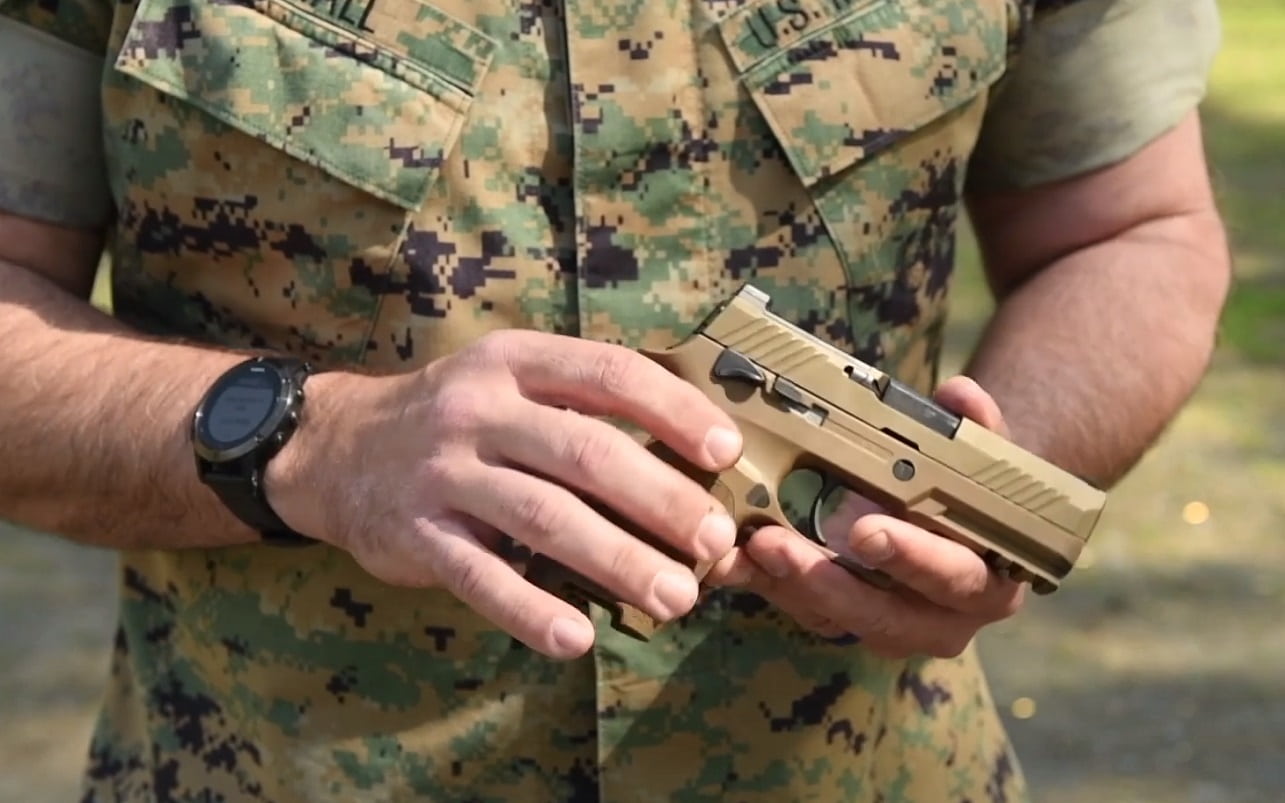
The U.S. Marine Corps has fielded a new service pistol for the first time in 30 years, according to a recent news release.
“This is the first time in 30 years that the Marine Corps has fielded a new service pistol since adapting its current one, the M9 Service Pistol,” it said in a news release.
As a replacement of M9 Pistol, the Marine Corps decided to use the new M18, the compact variant of the U.S. Army’s Modular Handgun System (MHS), which aims to modernize weapons systems and increase warfighter lethality.
The M18 phases out the M9, which has been in use for more than 30 years in the U.S. Air Force and Marine Corps.
The M18 is a 9mm, striker-fired pistol featuring a coyote-tan PVD coated stainless steel slide with black controls. The pistol is equipped with SIGLITE front night sights and removable night sight rear plate, and manual safety.
The new design boasts improved ergonomics, target acquisition, reliability, and durability which can increase shooter lethality. This weapons system upgrade is one of many in the works to modernize the resources utilized within the career field as well as the mission. It can also adapt to different accessory sets the M9 could not, such as flashlights, mounted laser and reflex sights.
According to the Department of the Navy’s recently published DoD Fiscal Year 2019 Budget Estimates for Marine Corps Procurement, the service plans to spend $6.3 million in 2019 to purchase 35,000 Modular Handgun Systems.
The Modular Handgun System will be purchased to replace the legacy M9, M9A1, M45A1, and M007 pistols with a more affordable and efficient pistol for maintenance.